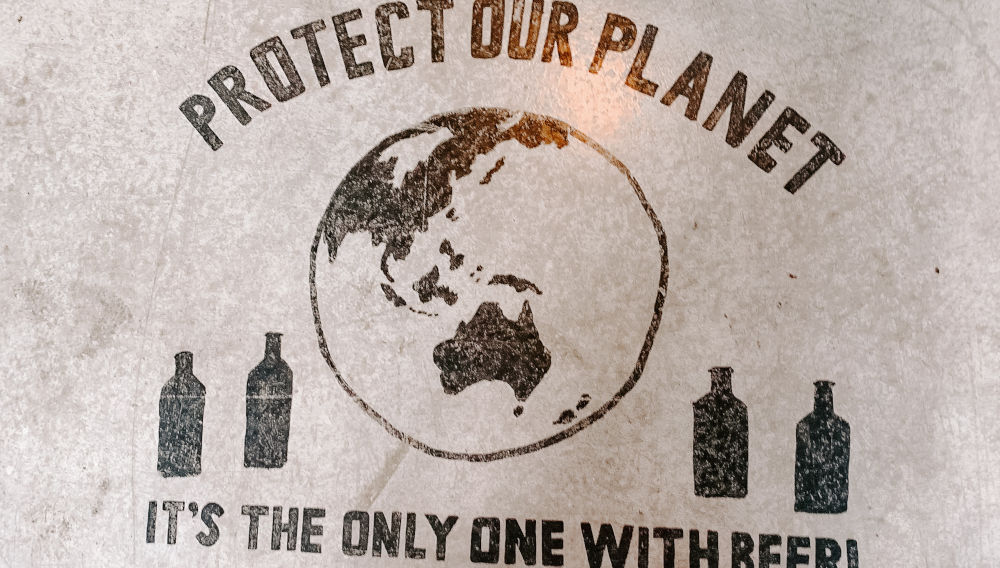Focus on sustainability | NX Filtration is a global supplier of beer microfiltration membranes, which is fast gaining momentum as the preferred filtration process for beer thanks to its quality assurance, cost savings, and sustainable credentials. Founded by some of the original developers of beer membrane filtration technology, NX Filtration also offers unique nanofiltration membranes for treating water, recovering and reusing chemicals and water recycling. The strong focus on sustainability can also be seen at the Spanish La Zaragozana brewery, where NX Filtration technology has been successfully implemented.

Breeding success | Diamant, a new noble aroma variety and a daughter of the old Spalter landrace, was launched by the Society of Hop Research (GfH) after an extensive time in development and selection carried out at the Bavarian State Research Centre for Agriculture, Freising, Germany. Diamant is a modern, economical variety with a top-class flavour, and it is environmentally compatible.
Brewing economics | A sustainable future for brewing: obiviously, everybody is for it – but how do you actually evaluate and implement sustainable brewing practices and procedures that not only resonate with consumers but also make sound business sense, both in the boardroom and in the brewery?

Sustainable and economical | A new generation of conscious consumers has driven significant change in the brewing industry. High-quality beer is now available in a range of flavors and varieties that align with consumers’ expectations, including low-alcohol, alcohol-free and gluten-free beers. But taste is not the only driver of new product development; rising concerns over the environment mean that sustainably produced beer is fast becoming people’s top choice. Now the question is, how can brewers improve the sustainability of their processes and end products to meet demand while also continuing to work economically?

A green approach | At a time when climate and ecology are at the center of political and citizen debates, it is also the duty of industries to reduce their ecological footprint. For breweries, the use of green malt is one way to achieve this. Castle Malting has been thinking and searching for many years for the best way to value green malt.

Cradle to cradle | Businesses around the world are under pressure to operate as sustainably as possible and the global brewing industry is no exception. Understandably, the use of packaging is under the spotlight in terms of supply chain benefits, product protection and with the rise in consumer environmental awareness the packaging end of life and re-use. Reduction in the use of plastics, recycling, was the aim a few years ago but now business models need to move towards a full circular evidenced lifecycle solution.
Water crisis | A few weeks ago marked the tenth anniversary of the financial crisis that sparked a sharp escalation in the cost of credit for banks, created a panic in financial markets, and led directly to all the other tumultuous events of the following year that cost tens of billions of euros. Much has since been written about the crisis of 2007 and whether lessons have been learned. Why were so many early warning signs ignored? One of the key learnings is a renewed focus on “stress testing”.
Water is the most important raw material of the beverage industry – and clean drinking water is an increasingly valuable good. Apart from the economic responsibility, our industry has, therefore, also a major social responsibility to protect this vital resource. Efficient and sustainable water management requires an integrative approach, which taps the entire optimization potential around water usage. This includes the evaluation of local water catchment areas as well as the reduction of water consumption and the full recycling of any wastewater arising.
Beverage packaging must be practical, hygienic, free of defects and safe. It must also preserve the integrity of the product while meeting the needs and desires of customers and consumers. But this is not all: The environmental impact of beverage packaging has become a decisive factor in production, use and disposal. Technological developments continue to make ongoing optimization possible. Trends in the further improvement of environmentally friendly beverage packaging include conserving the use of raw materials, increasing the reuse of packaging and boosting the portion of recyclable materials in packaging. In addition to this, techniques using high-pressure in conjunction with sustainable materials have been employed.
Corporate social responsibility (CSR) is nothing if not a mouthful. Multinational companies over-engage in a vast range of activities that come under the doing-good umbrella. It spans everything: from volunteering in the local community to looking after employees’ health, from giving out micro-credit to women in Bangladesh to saving the rainforests. With such a fuzzy, wide-ranging subject, many companies find it hard to know what to focus on. Still, CSR is booming. Whether through their websites or glossy reports, big multinationals want to tell the world they are good and ethical and their bosses right and reasonable. None of this means that CSR has suddenly become a great idea. But in practice few big companies can now afford to ignore it.
Reducing energy and water consumption is an important topic for the brewing industry. Both economic and environmental factors play a decisive role in the quest to minimise energy and water consumption. The question is what energy efficiencies do other breweries achieve and what is best practice? Prompted by an agreement with the government, the Dutch Brewers Association (CBK) set out to develop a methodology in 2000 to establish the worldwide benchmark in specific energy consumption for the brewing industry. The benchmark has been repeated in 2004 and again in 2008.



